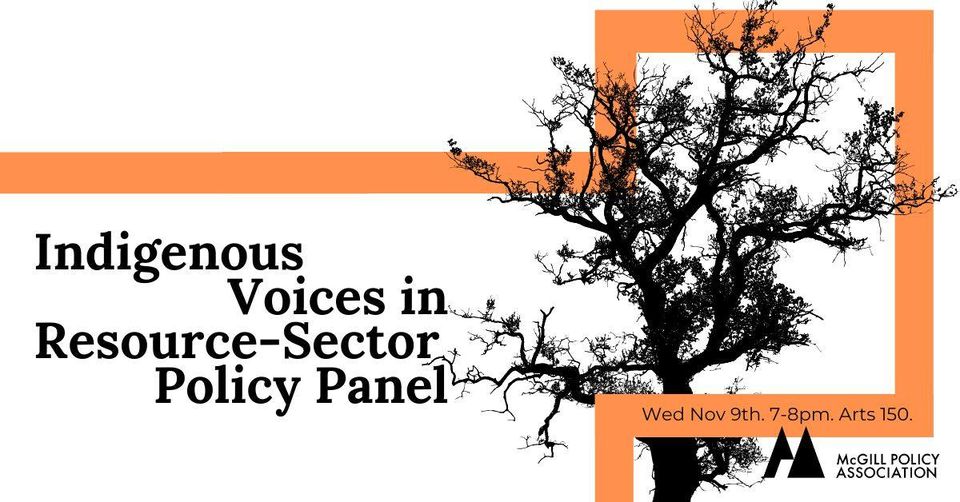On Nov. 9, the McGill Policy Association (MPA) hosted a panel titled “Indigenous Voices in Resource-Sector Policy,” which centred around Indigenous activism within environmental policy.
The first of the two panellists was Yolanda Lopez-Maldanado, an Indigenous Maya from Mexico and the recently appointed Traditional Ecological Knowledge and Indigenous Affairs Officer at the Montreal-based Commission for Environmental Cooperation. The second panellist was Jen Gobby, an activist, scholar, and current course lecturer at McGill’s Bieler School of Environment and an affiliate assistant professor at Concordia University.
The panel began with a discussion of the challenges Indigenous groups face in the context of environmental policy and protection. As a researcher, Lopez-Maldanado spoke to the neglect of traditional forms of knowledge within academia and the effects that this exclusion has on environmental policy.
“We […] forget that Indigenous peoples are [at] the forefront of conservation and the majority of the information that is around the government policy in environment is influenced by science,” Lopez-Maldanado said. “We need to understand that over the years, science has not been including the voice and the perspectives of Indigenous peoples […] for understanding the natural world.”
Gobby added that Indigenous communities are mostly excluded when it comes time to make policy decisions. She explained that many corporations and governments, including the Canadian federal and provincial governments, claim to consult with Indigenous groups but often do not heed their suggestions or needs.
“When an industry wants to put a pipeline or a mine in […] they consult with Indigenous people, tell them what they’re planning, ask for their feedback, and then do what they want anyways,” Gobby said. “That’s how our federal climate policy was made, reproducing the same settler-colonial relations [….] In my view that’s a very big challenge that needs to be addressed immediately if we have any hope of addressing the climate crisis.”
Lopez-Maldanado stressed the non-homogeneity of Indigenous communities around the world. The nuances of Indigeneity are overlooked, she says, and to be good allies, settlers must acknowledge that Indigenous people are more than capable of determining what solutions are best for them.
“Stop romanticizing Indigenous peoples. We are the same [as] you. We go to school, we get our PhDs, we are very well prepared to defend ourselves,” Lopez-Maldanado said. “So you can be allies to us and not […] always trying to defend [us] because we can do it by ourselves.”
The panel helped fulfill the MPA’s goal of diversifying the content of the organization’s events and engaging students from different backgrounds and academic interests. MPA Executive Director, Michelle Marcus, expanded more on the organization’s goals for the year in an interview with The McGill Tribune.
“One of our goals as an organization altogether is to really play into the interests of not just political science and [economics] students, but really trying to be interdisciplinary and appealing to a wide range of students on topics that are relevant, but that people don’t always realize have such deep roots in policy,” Marcus said.
Marcus is a firm believer in the importance of intersectional conversations in the context of policy.
“I think the idea of having both Indigenous perspectives represented, but also the point of having those cross-conversations […] puts us, as settlers, in our place,” Marcus said. “[These conversations allow us] to change how we’re approaching policy, especially in a sector like environmental policy where Indigenous […] prioritization of land is so crucial to how we approach and tackle anything related to the climate or sustainability.”










